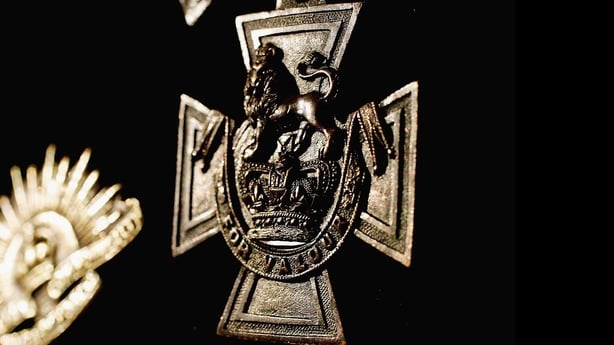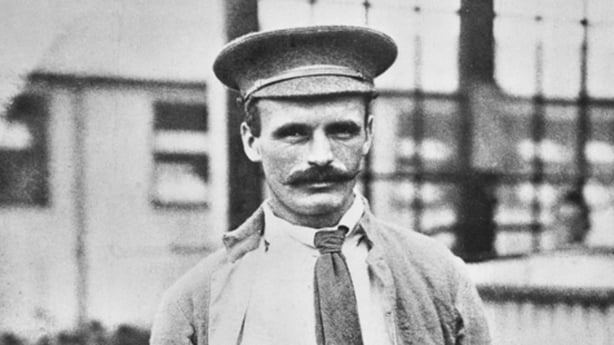A Victoria Cross won by an Irish man in World War I is to go on display in his home village in north Tipperary.
Sergeant Martin O'Meara was born in the parish of Lorrha in 1885 and emigrated to Australia in 1911, where he later enlisted in the armed forces.
He was given the award to recognise his acts of bravery at Pozieres in France in August 1916.
The VC is the highest award for gallantry in the face of the enemy awarded to British and Commonwealth forces.
The medal has been on loan from Australia since 2019 and has been on display at the National Museum of Ireland.

Ger O'Meara, Secretary of the Martin O'Meara VC Committee, said the Victoria Cross will be displayed in the vicinity of the ruins of the Dominican Abbey in Lorrha from tomorrow.
Mr O’Meara, who is not related to Martin O’Meara, explained how Sgt O’Meara was awarded the VC.
"He spent three days rescuing the wounded and earning the admiration of his comrades. He rescued 15 injured comrades," he said.
We need your consent to load this rte-player contentWe use rte-player to manage extra content that can set cookies on your device and collect data about your activity. Please review their details and accept them to load the content.Manage Preferences
Mr O’Meara said the Victoria Cross medal is a rare achievement and there are only around 1,700 people who have received one, including around 180 Irish.
He said he is "arguably" the only non-native Australian who was awarded the VC during that war.
Mr O’Meara said a lot of work was done to bring the medal to Ireland by the extended O'Meara family, the Irish Department of Foreign Affairs and the National Museum.

He said these medals are revered in Australia and certain artifacts are not allowed leave the country.
In 2018, Australia's heritage legislation was amended to allow for the temporary export of important cultural artifacts, enabling the VC to be sent to Ireland. It will return to Australia later this year.
According to the Australian War Memorial, Sgt O'Meara was discharged from the army in November 1919.
He was later admitted to a psychiatric facility for soldiers suffering from the effects of war.
He spent the rest of his life there and died in December 1935.

